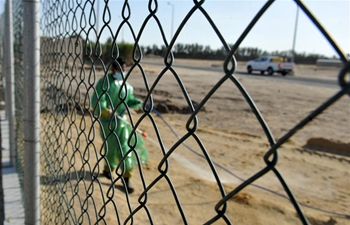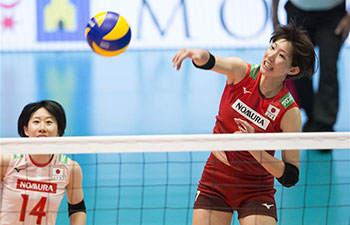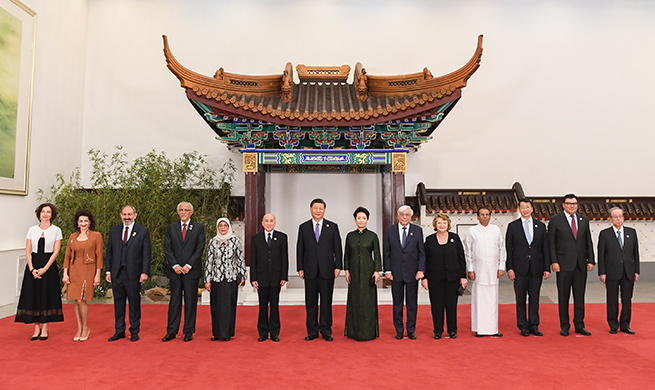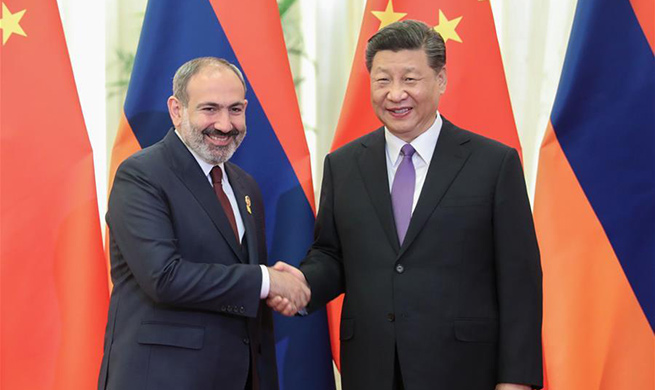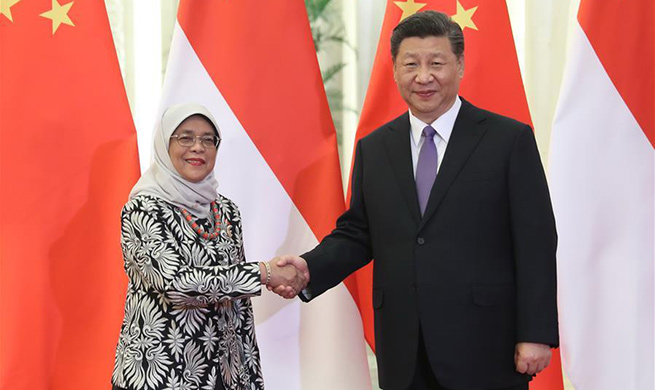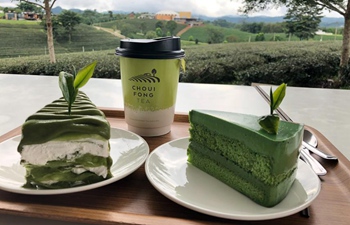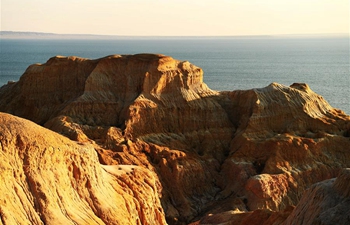JINAN, May 15 (Xinhua) -- Wood coffins engraved with dragons and phoenixes, cloth coffins covered with embroidered flowers and grass, handcrafted memorial tablets, people are dying to get their hands on coffins made in China.
In Zhuangzhai Township of Heze, east China's Shandong Province, companies churn out coffins every day, a big number of which are exported to Japan, which faces a rapidly ageing population.
According to official figures, coffins exported from the township account for more than 60 percent of all coffins sold in Japan. In addition, other related products such as cinerary caskets, memorial tablets and sacrificial alters are also popular.
"There are three main companies making wood and cloth coffins in the township," said local official Guo Fengmin. "Annual production volume is about 740,000, with prices ranging from 500 yuan (73 U.S. dollars) to more than 2,000 yuan each, depending on various sizes and craftsmanship."
Guo said that the products were mainly sold to Japan.
In one of the companies, female workers carefully put white satin inside a cloth coffin. The cloth coffin is covered with blue, light yellow or pink cloth, with Japanese style flowers and grass embroidery. The coffins and spare parts fill up the entire 8,000 square meter factory.
"Japanese clients are strict with every detail, from raw materials, to sizes, to decorations, or even smells," said Tian Liang, manager of Dehong Wood Product Company in Zhuangzhai. "Some clients even use rulers to measure the coffins to see if the sizes are precise."
The company began business in 2006. Currently, it has partnered with four listed companies in Japan, and exports more than 200,000 coffins, with an annual revenue of more than 90 million yuan.
Another company, the Yunlong Carvings, located in Caoxian County, which administers Zhuangzhai, began making coffins in 2000. It currently exports more than 200,000 coffins and about 240,000 memorial tablets to Japan. Annual revenue has exceeded 100 million yuan.
"The Japanese clients love platane wood, which is light and easy to burn, and has no bad smells," said company general manager Cai Xiufang. "It suits the Japanese tradition of cremating the body and the coffin after the funeral."
Tian Liang's company has even founded teams in Japan to study the local traditions, culture and market, hoping to tap further potential there.
"We have carefully studied our clients demands on coffin weight, carvings, appearance, designs and materials," Tian said. "For example, we make coffins decorated with sakura elements during the flower's blooming season."
Japan is rapidly ageing. According to figures released on Sept. 16, 2018 by Japan's Ministry of Internal Affairs and Communications, Japan had 35.57 million senior citizens above the age of 65, accounting for 28.1 percent of its entire population. Last year, the mortality rate reached a record high since the Second World War, with 1.37 million people deceased, according to Japan's Ministry of Health, Labor and Welfare.
"Japanese people pay great attention to the ceremony after a person, or even a pet dog or cat, dies," Tian Liang said. "The pets also have their own small coffins, of which we export about 500 each year to Japan."
Cai Xiufang said that in the beginning, Japanese companies wanted to do business with companies on the eastern seaboard, such as Shanghai and Zhejiang, but the companies needed to purchase wood from northern China, which pushed up their costs.
"Besides, the humidity in the southern part of China made the coffins easily deformed, so the production base gradually moved north to the city of Heze, one of the biggest wood product bases in China," Cai said.
Heze has abundant cheap wood of high quality, as well as a lot of seasoned craftsmen, laying a solid foundation for coffin businesses.
Zhou Yuhua, a professional memorial tablet maker, has been carving the tablets for 15 years.
"The Japanese people usually need two memorial tablets, one of which they cremate with each coffin, and the other they use for worshiping," Zhou said.
Zhou said the tablets he made were carefully crafted by hand.
"For example, the ink characters by the writing brush do not disperse," he said.
"China and Japan are quite close in location, and the two countries share many similarities culturally," Cai Xiufang said. "I hope the Japanese people appreciate the craftsmanship behind the products."





